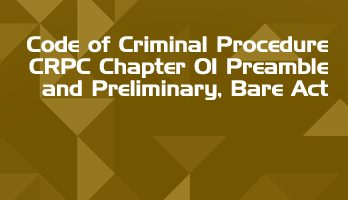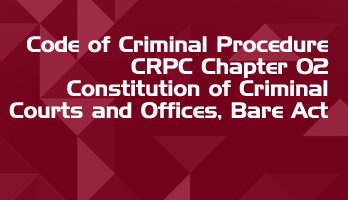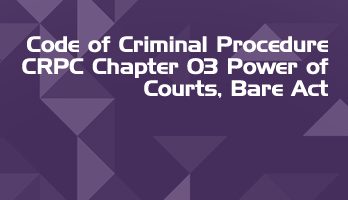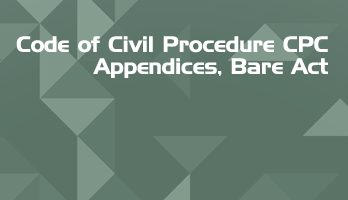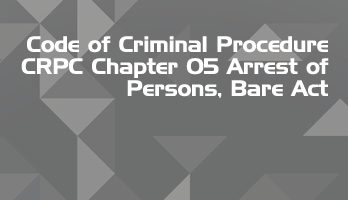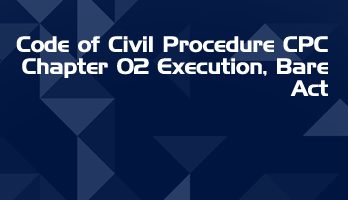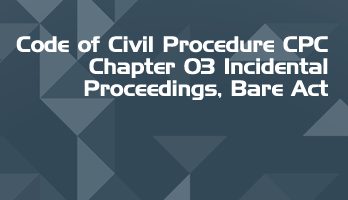A 'Bare act' is the actual legislation passed by the Parliament of India. Generally, an act sets out the high level legal and policy principles applicable to the subject matter of the law.
Most acts are accompanied by 'subsidiary legislation' such as rules, regulations, notifications and orders; which address the actual implementation detail of the act.
Free Full Course Available on LawMint's YouTube Channel
How to Land Your Dream LLB Internship in a Top Law Firm
- Part 1 - Introduction
- Part 2 - Internship Planning
- Part 3 - Internship Research
- Part 4 - Building Your Profile
- Part 5 - The Email
- Part 6 - The Resume
- Part 7 - The Cover Letter
- Part 8 - The Interview
- Part 9 - Self Development
Practical and comprehensive course, with real examples and step-by-step analysis of the complete internship application process. Check out LawMint's YouTube channel now!
Indian Penal Code, 1860
Chapter XXII – Of Criminal Intimidation, Insult & Annoyance
Section 503 – Criminal intimidation
Whoever threatens another with any injury to his person, reputation or property, or to the person or reputation of any one in whom that person is interested, with intent to cause alarm to that person, or to cause that person to do any act which he is not legally bound to do, or to omit to do any act which that person is legally entitled to do, as the means of avoiding the execution of such threat, commits criminal intimidation.
Explanations
- A threat to injure the reputation of any deceased person in whom the person threatened is interested, is within this section.
Illustrations
- A, for the purpose of inducing B to resist from prosecuting a civil suit, threatens to burn B – house. A is guilty of criminal intimidation.
Section 504 – Intentional insult with intent to provoke breach of the peace
Whoever intentionally insults, and thereby gives provocation to any person, intending or knowing it to be likely that such provocation will cause him to break the public peace, or to commit any other offence, shall be punished with imprisonment of either description for a term which may extend to two years, or with fine, or with both.
Section 505 – Statements conducing public mischief
- Whoever makes, publishes or circulates any statement, rumour or report
- with intent to cause, or which is likely to cause, any officer, soldier, sailor or airman in the Army, Navy or Air Force of India to mutiny or otherwise disregard or fail in his duty as such; or
- with intent to cause, or which is likely to cause, fear or alarm to the public, or to any section of the public whereby any person may be induced to commit an offence against the State or against the public tranquillity; or
- with intent to incite, or which is likely to incite, any class or community of persons to commit any offence against any other class or community, shall be punished with imprisonment which may extend to three years, or with fine, or with both.
- Statements creating or promoting enmity, hatred or ill will between classes – Whoever makes, publishes or circulates any statement or report containing rumour or alarming news with intent to create or promote, or which is likely to create or promote, on grounds of religion, race, place of birth, residence, language, caste or community or any other ground whatsoever, feelings of enmity, hatred or ill – will between different religious, racial, language or regional groups or castes or communities, shall be punished with imprisonment which may extend to three years, or with fine, or with both.
- Offence under sub – section (2) committed in place of worship, etc. – Whoever commits an offence specified in sub – section (2) in any place of worship or in any assembly engaged in the performance of religious worship or religious ceremonies, shall be punished with imprisonment which may extend to five years and shall also be liable to fine.
Exceptions
- It does not amount to an offence, within the meaning of this section, when the person making, publishing or circulating any such statement, rumour or report, has reasonable grounds for believing that such statement, rumour or report is true and makes, publishes or circulates it in good faith and without any such intent as aforesaid.
Section 506 – Punishment for criminal intimidation
Whoever commits the offence of criminal intimidation shall be punished with imprisonment of either description for a term which may extend to two years, or with fine, or with both;
If threat be to cause death or grievous hurt, etc – and if the threat be to cause death or grievous hurt, or to cause the destruction of any property by fire, or to cause an offence punishable with death or imprisonment for life, of with imprisonment for a term which may extend to seven years, or to impute unchastity to a woman, shall be punished with imprisonment of either description for a term which may extend to seven years, or with fine, or with both.
Section 507 – Criminal intimidation by an anonymous communication
Whoever commits the offence of criminal intimidation by an anonymous communication, or having taken precaution to conceal the name or abode of the person from whom the threat comes, shall be punished with imprisonment of either description for a term which may extend to two years, in addition to the punishment provided for the offence by the last preceding section.
Section 508 – Act caused by inducing person to believe that he will be rendered an object of the Divine displeasure
Whoever voluntarily causes or attempts to cause any person to do anything which that person is not legally bound to do, or to omit to do anything which he is legally entitled to do, by inducing or attempting to induce that person to believe that he or any person in whom he is interested will become or will be rendered by some act of the offender an object of Divine displeasure if he does not do the thing which it is the object of the offender to cause him to do, or if he does the thing which it is the object of the offender to cause him to omit, shall be punished with imprisonment of either description for a term which may extend to one year, or with fine, or with both.
Illustrations
- A sits dharna at Z – door with the intention of causing it to be believed that, by so sitting, he renders Z an object of Divine displeasure. A has committed the offence defined in this section.
- A threatens Z that, unless Z performs a certain act, A will kill one of A – own children, under such circumstances that the killing would be believed to render Z an object of Divine displeasure. A has committed the offence defined in this section.
Section 509 – Word, gesture or act intended to insult the modesty of a woman
Whoever, intending to insult the modesty of any woman, utters any word, makes any sound or gesture, or exhibits any object, intending that such word or sound shall be heard, or that such gesture or object shall be seen, by such woman, or intrudes upon the privacy of such woman, shall be punished with simple imprisonment for a term which may extend to three years, and also with fine .
1 Criminal Law (Amendment) Act, 2013
Section 510 – Misconduct in public by a drunken person
Whoever, in a state of intoxication, appears in any public place, or in any place which it is a trespass in him to enter, and there conducts himself in such a manner as to cause annoyance to any person, shall be punished with simple imprisonment for a term which may extend to twenty – four hours, or with fine which may extend to ten rupees, or with both.
Important Central Acts in Regional Languages
Legislative department website also features regional language versions of several important Central Acts.
Free Full Course Available on LawMint's YouTube Channel
How to Land Your Dream LLB Internship in a Top Law Firm
- Part 1 - Introduction
- Part 2 - Internship Planning
- Part 3 - Internship Research
- Part 4 - Building Your Profile
- Part 5 - The Email
- Part 6 - The Resume
- Part 7 - The Cover Letter
- Part 8 - The Interview
- Part 9 - Self Development
Practical and comprehensive course, with real examples and step-by-step analysis of the complete internship application process. Check out LawMint's YouTube channel now!






